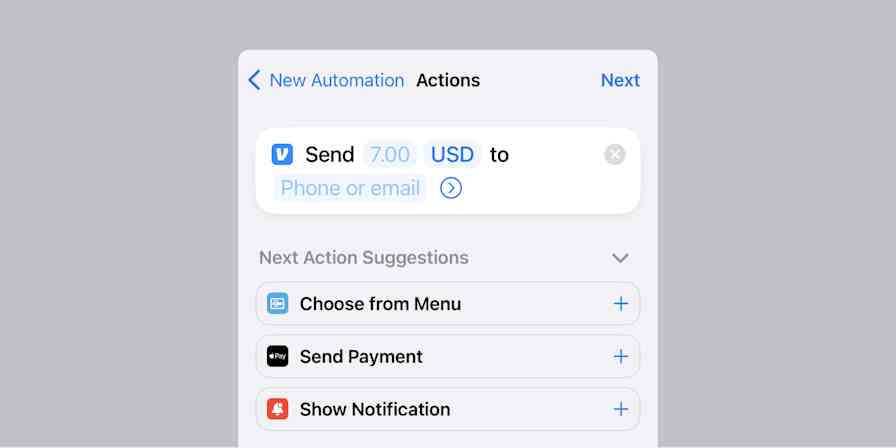No one likes interviewing, but there's one phenomenon—interview paralysis—that has a unique ability to slip through the cracks of our preparation. Even after every preparation box has been checked, we show up to our interview with a blank mind and overwhelming panic, and we leave the interview unable to figure out what happened.
As I've deconstructed my own interview paralysis, I've discovered that the call is coming from inside the house. Each person will undoubtedly have their own experience, but I think there are a few things that consistently work together to create this phenomenon in each of us—and some clear ways to fight it.
What is interview paralysis?
The name gives you a decent idea of what's happening: that feeling of frozen panic that occurs before and/or during an interview. It makes it almost impossible to show up as your whole self in an interview and do your best to impress the interviewers.
In my experience, the paralysis starts long before the interview starts, but it kicks in for some people the moment the interview begins. Either way, it usually stems from a few common interview fears.
What causes interview paralysis—and how can you overcome it?
I've always known interviews were a struggle for me. The most frustrating thing was that I knew I was qualified for the role I was interviewing for, but interview paralysis always either blocked me out or diminished my effectiveness in the interview.
Of course, the cause of interview paralysis will be different for each person. So while this list isn't exhaustive, I've found these are the areas that tend to create the environment in our brains for the phenomenon to flourish. As I experienced them, I've also found ways to fight back against them, which I'll share here as well.
1. The idea that there's no room for mistakes
Mistakes are tough enough to deal with in day-to-day job situations, but an interview is where you're supposed to be showing off your "best self." This makes us feel like interviews need to be a land of no mistakes, and we think that one mistake—even the smallest one—will derail our chances for the whole interview.
I've lost count of the number of times I received interview feedback about how I wasn't concise enough and couldn't get to the point quickly enough. I would ramble endlessly, trying to land a plane even though I knew I'd missed the runway five sentences before. It wasn't that I didn't know the answer—I just couldn't perform it in the interview.
How to manage:
Of course, rambling once isn't the end of the road for a candidate. If I had taken a breath, realized I'd made a mistake (rambling), acknowledged it, and moved on, I could have nailed the rest of the interview.
Don't be afraid to pause in an interview and acknowledge a mistake or mess-up. This kind of self-awareness can actually be impressive, and it gives you a second to compose yourself and essentially start over. That way, your one mistake doesn't turn into an entire interview of that same mistake.
2. Poor interview prep
"You play how you practice." The attitudes, sentiments, and gaps left in your interview preparation will absolutely reveal themselves when you interview—and probably more than you'd expect.
But on a deeper level, when you don't prepare well for an interview, you communicate subtle messages to yourself about both the importance of the task and about yourself. You are worth the time and effort of being fully prepared, and when you don't prepare well, you communicate the opposite. Whether you're fully conscious of it, it can contribute significantly to the paralysis.
How to manage:
This one's simple: prep for the interview. Of course, that's vague, so here's what it looks like for me.
First, I pretend I'm the recruiter or hiring manager. I review the job description and desired skills and come up with a few of my own questions for this job. When coming up with answers, I keep in mind: what skill are they actually looking for in this answer?
Then I write out my answers. I'm not a fan of scripts—they can trip me up—so instead of writing out the answer word-for-word, I write out the path my answer will take along the STAR method using bullet points. I always make sure that my answers have some sort of narrative arc—that helps with the rambling.
I practice these answers with someone else, and I often record myself giving the answers. Seeing or hearing yourself—while cringey at times—can be really helpful in finding areas you can refine.
Since I'd identified my area of weakness (rambling), I also came up with a phrase that I now use during interviews to signal my brain that it's time to land the plane. I say "As a result…", then describe the result of the actions I took. This was my interview prep game changer.
3. Low confidence in your own skills and experience
Often, in an attempt to display humility, we develop a scarcity mindset about our skills. We construct narratives and beliefs that our skills or achievements aren't that impactful or impressive. The fact that you're being interviewed for a position gets painted as a "favor" or like the organization is taking a chance on you.
How to manage:
Let's talk facts here: you aren't being interviewed by mistake. If you're being asked to interview, it's because you have the skills and experience for the position.
Something that has helped me reduce moments of rising doubt is meditating on this quote: "I don't have confidence, I have evidence." Make a list of all the things you've done that align with the role you're applying for, no matter how small. Kick that scarcity mindset to the curb. You'll be surprised by how much you show up for yourself once you do.
Also remember: the interview process doesn't need to be one-sided. It's an exchange, a conversation. Your skills will be assessed and evaluated, yes. But you get to assess and evaluate the job from your perspective, too. Don't forget that you also have power in the situation—you're not the only one being evaluated. (And don't forget to ask lots of questions at the end!)
4. Framing interview outcomes using metrics outside your control
Going into the interview, we tend to frame success as getting the job.
On the surface, this doesn't seem like an issue—it's just a logical progression of the interview process. But there are various factors that make this measurement of success for the interview ineffective. For example:
Interview processes are typically longer than a single interview.
You don't control the number of candidates who are applying for the same role or their qualifications.
You also don't control who will be interviewing you. Unfortunate but real: you may encounter interviewers with unconscious bias.
It's easy to feel like, if you don't get the job, it means something's wrong with you. This is especially hard if you feel you prepared well, but when the interview started, the paralysis took over.
How to manage:
Reframing success isn't easy, but it can really help alleviate some of the pressure and therefore help avoid interview paralysis.
Remind yourself that whether or not you get the job (a) is completely out of your control and (b) isn't about this one interview. Instead, come up with different success metrics. For me, that looks like this:
Success is showing up as my full self, present in the moment.
Success is effectively communicating my skills, experience, capacity, and passion for the role.
Success is answering questions in a concise, honest, confident, and authentic manner.
Learn more: Don't take rejection personally
Trust yourself
How you attack each of these blockers will depend on what's hardest for you. For example, I began working on my confidence first. Once the gears started shifting on that piece, the other aspects came into focus. It was much easier to prepare for an interview when I had confidence in the skills I was planning to showcase. And reframing the outcome was the icing on the cake to help me escape the paralysis—a "successful" interview became something I defined, something I controlled, and not something I left up to anyone else.
The aim isn't perfection—but you can focus on an outcome of improvement.
Related reading:





